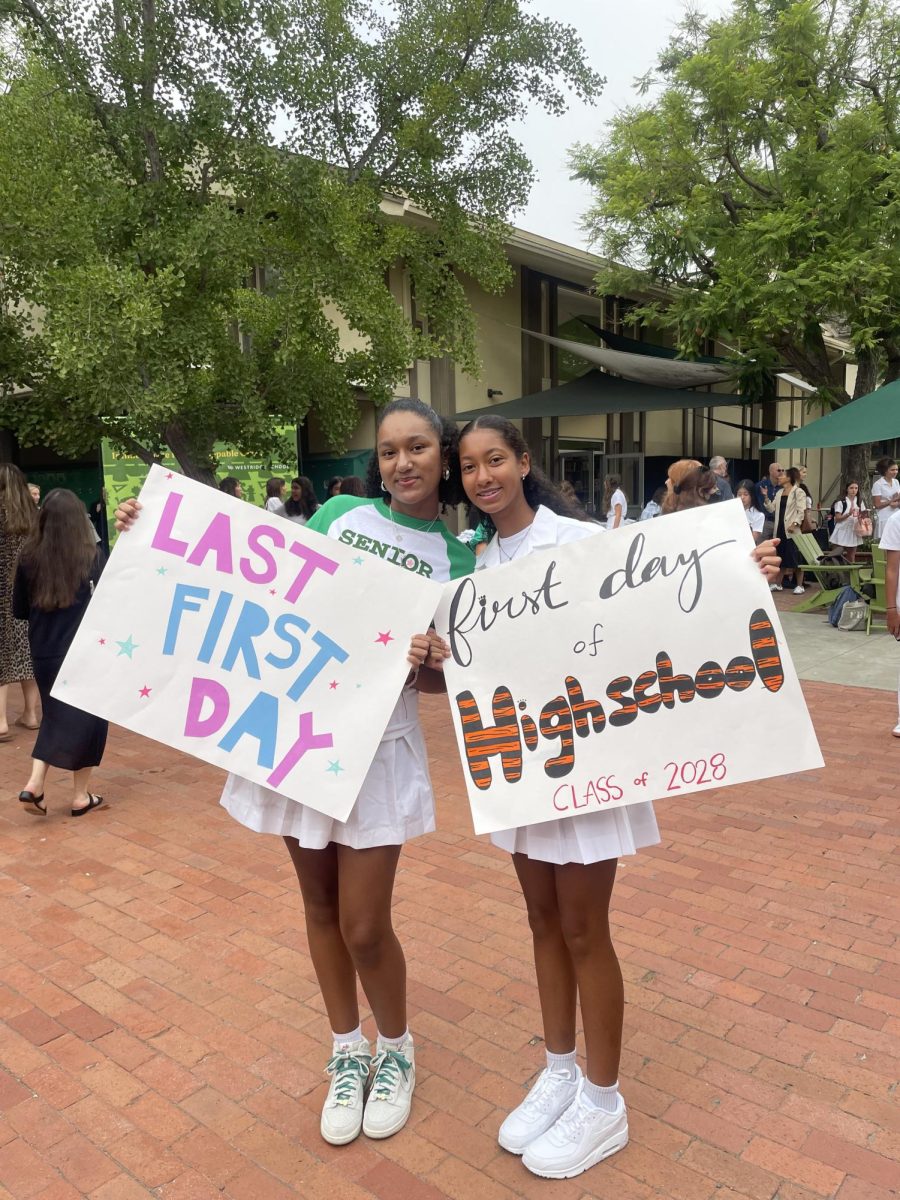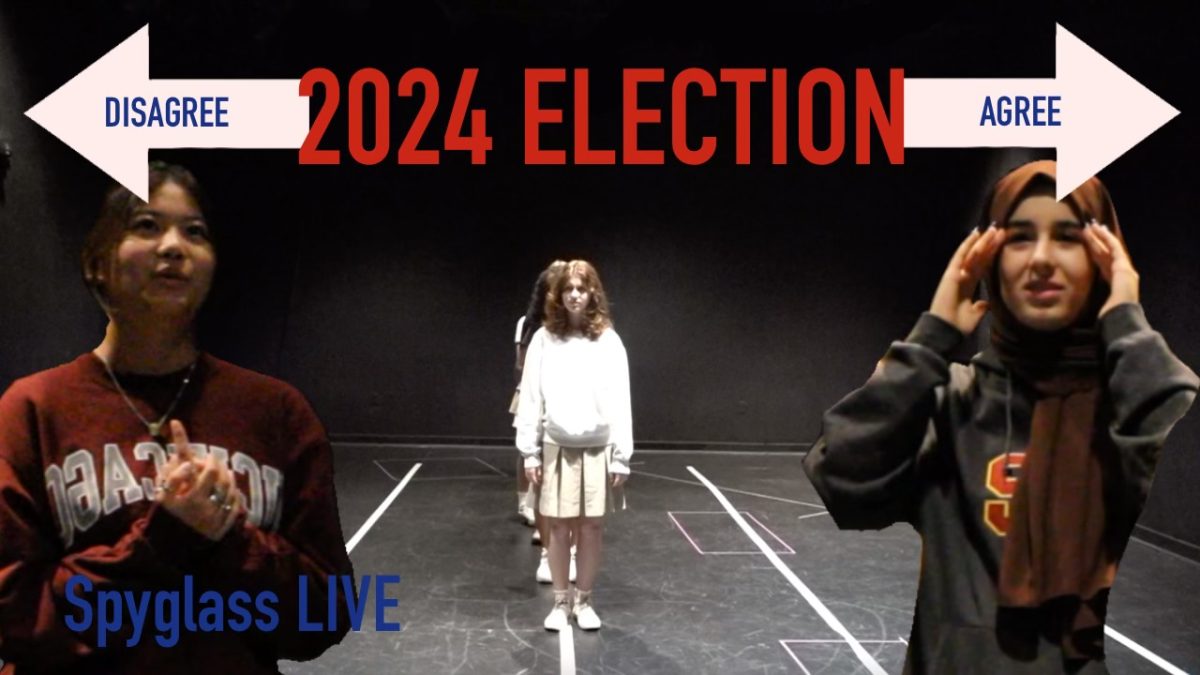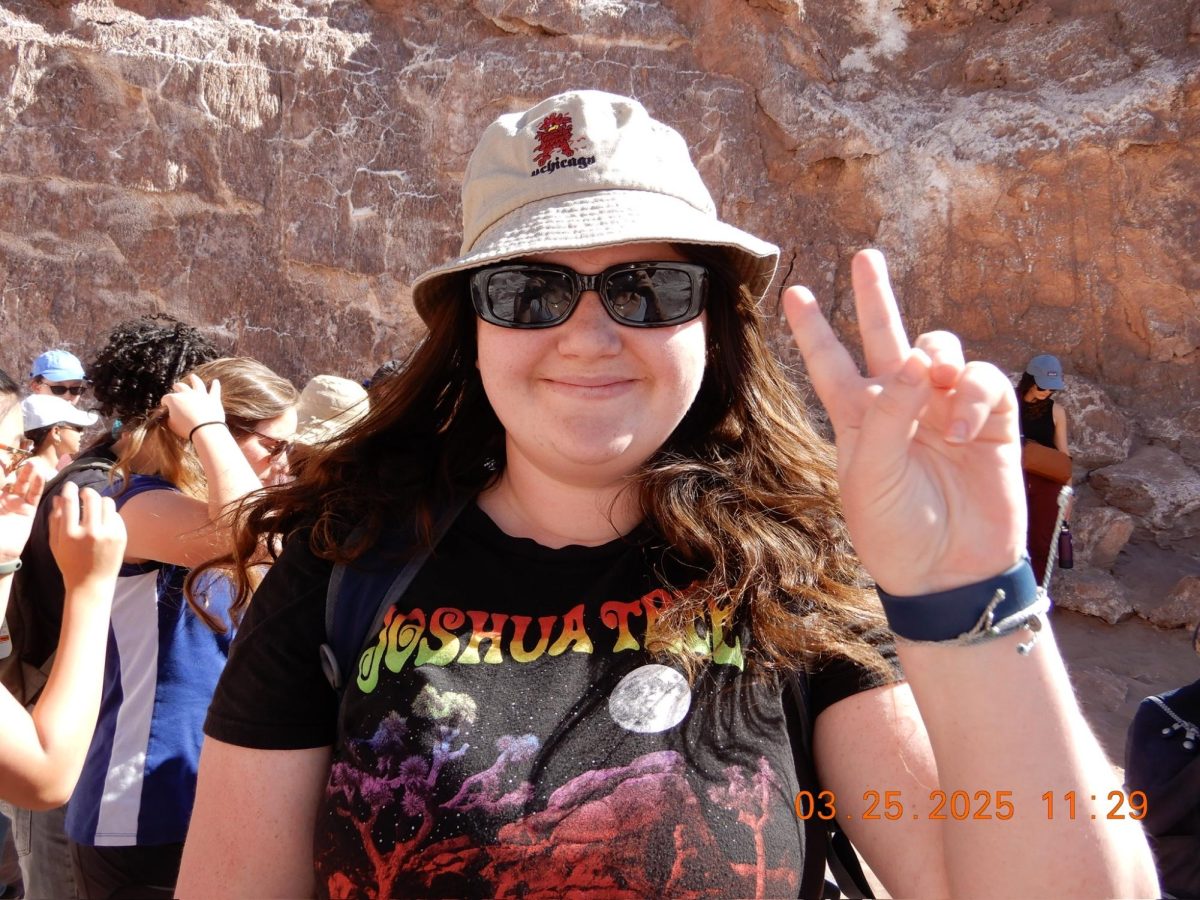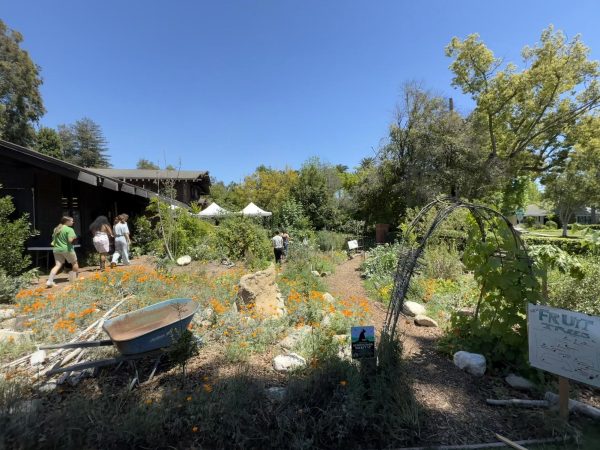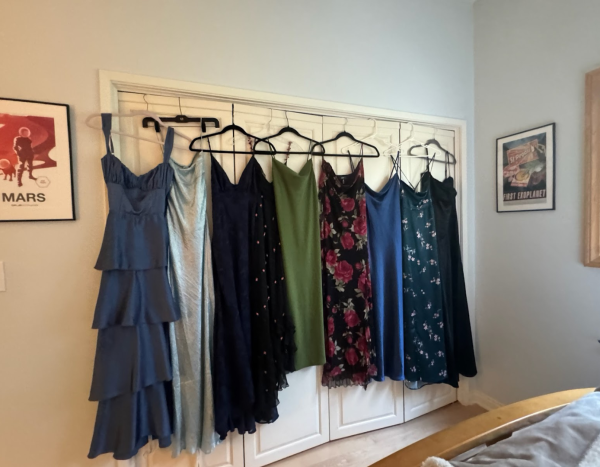Westridge’s Spring Production of The Book of Will Highlights “the power of theater to pull us through difficult times”
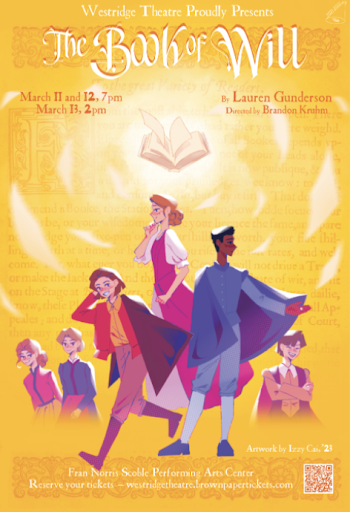
The poster for the Spring play, The Book of Will. (Artwork by Izzy C. ’23)
The stage darkens as the sound of rustling paper and applause echoes through the theater. The audience murmurings die down and the first actor walks onto the stage accompanied by a spotlight. And with that, the spring performance of The Book of Will begins.
The play follows a ragtag group of actors in Shakespeare’s King’s Men troupe. Three years after Shakespeare’s death, the actors work to combine all of his plays into a book to preserve his legacy.
COVID-19 hit the Westridge theatre department hard, forcing productions online last year and outside in the amphitheater when school resumed in person this year. The Book of Will, performed on March 11, 12, and 13, is the first play since the beginning of the pandemic to be inside the Performing Arts Center (PAC). All audience members had to provide proof of vaccination and wear masks throughout the whole show. Groups were seated two seats away from each other.
In early January when rehearsals started, Westridge was forced online due to an increase in COVID cases. This posed a challenge to the company because the first rehearsals are usually spent figuring out where the actors stand and how they move onstage, which is difficult to do online. Mr. Brandon Kruhm, Director of Theatre, had to screen share a diagram of the stage and virtually point out the blocking of each scene.
“When the actors came back, I was really surprised and impressed at how much of [the blocking] they were able to retain and figure out sort of for the first time and they knew where to be,” Kruhm said.
Once the company returned to in-person rehearsals, everyone had to adjust to being back in the PAC. For example, the props crew had to make all of the props and backdrops bigger than the props and backdrops of this year’s previous plays because of the larger stage. Mrs. Katie McDermott, Scenic and Properties Designer, remarked on the difficulties. “It was a lot of paper. There’s like these big paper lines that come out during the show and get pulled up on pulleys…we called it the Show of Paper.”
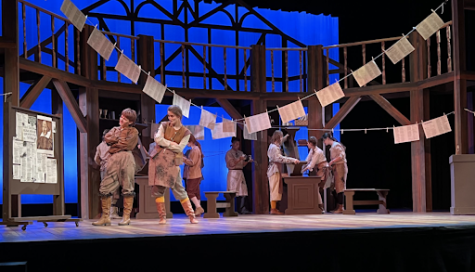
Audience members enjoyed the show. Agatha C. ’23 commented on the lighting and scene design. “It was good, very jubilant. I liked the blue hues, it was all so enjoyable.”
During rehearsals, the company met with Lauren Gunderson, the writer of The Book of Will. “As a director, I really tried not to let her intention affect us too much,” Izzy C. ’23, one of the play’s assistant directors, said. “She didn’t end up imposing her will. I think she was very wonderful to talk to. I think she really brought us perspective, big picture. Learning what she thought the heart of the show was gave us more perspective of how we should approach those scenes. It was just kind of lovely to talk to her, she was very kind. It was just fun.”
The Book of Will is a historic recounting of how Shakespeare’s plays were gathered and preserved, but the main focus of the play isn’t on Shakespeare; it’s on the impact of theater and art on society. “I think the play is sort of about the power of theater to pull us through difficult times, and so it sort of felt, coming back from a pandemic and for our first show to be back in PAC, just really cool,” Mr. Kruhm said.
Izzy remarked on a scene where the two of the main characters discuss their passion for theater. “John and Henry are sitting on the Globe stage, and they’re talking about their love for theater and art and how important it is and why we do theater at all. In the scene, it’s the two characters looking around and being in awe of the Globe Theater and their love for this space and for the art, but it was not just John and Henry, it was Luca and Amelia sitting on the PAC stage looking at PAC, this building that is so dear to us.” Luca G. ’22 and Amelia H. ’22 played two main roles in the play.
“It was definitely sad, saying goodbye to Westridge theatre essentially and doing my last show,” Amelia said. “I do think that the character and the show were really good to finish on because they are about the importance of theater. So finishing up on that felt really appropriate, but it definitely felt sad because it becomes such a tight-knit community that I’ve been part of for the past four years. Now it’s over and my heart’s a little broken, but I still get to see everyone around campus and I still get to go into the Performing Arts Center and talk to the teachers.”





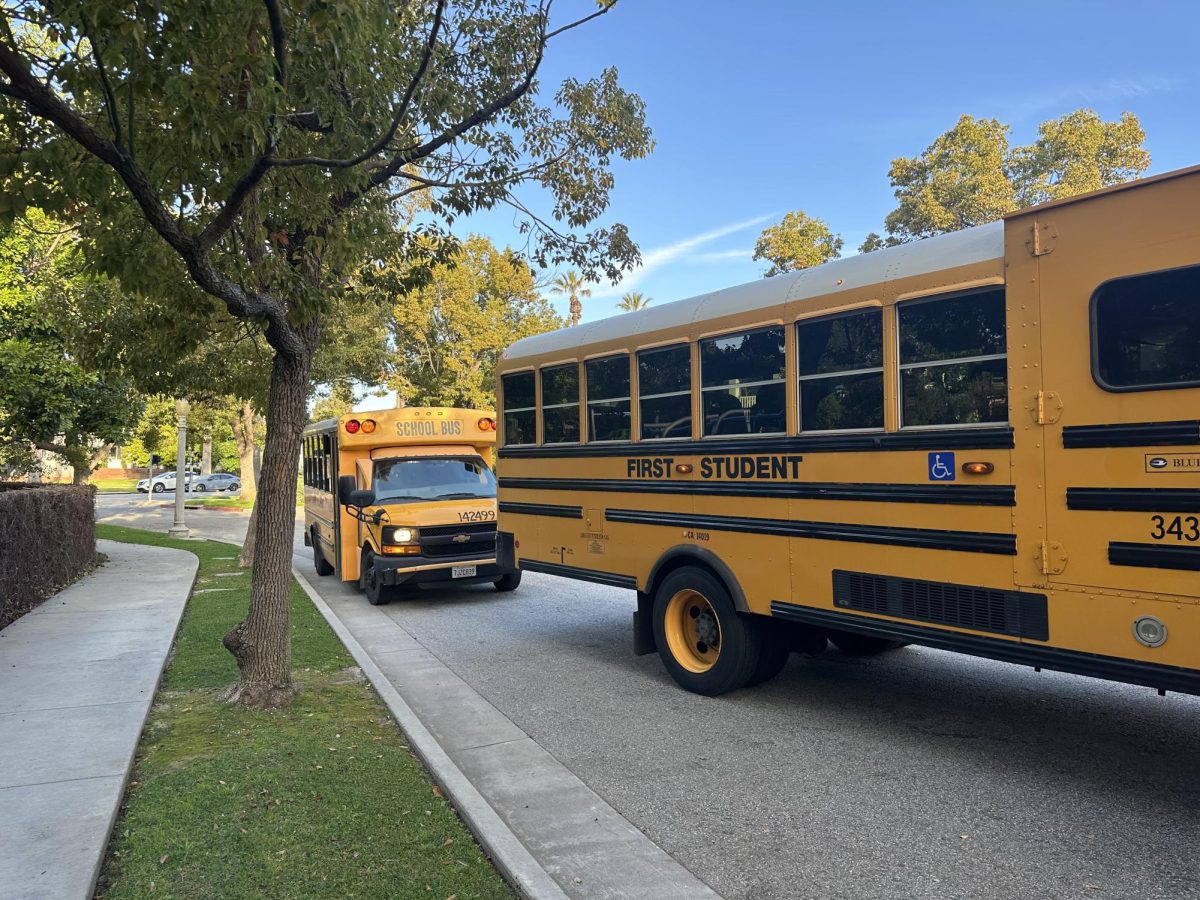


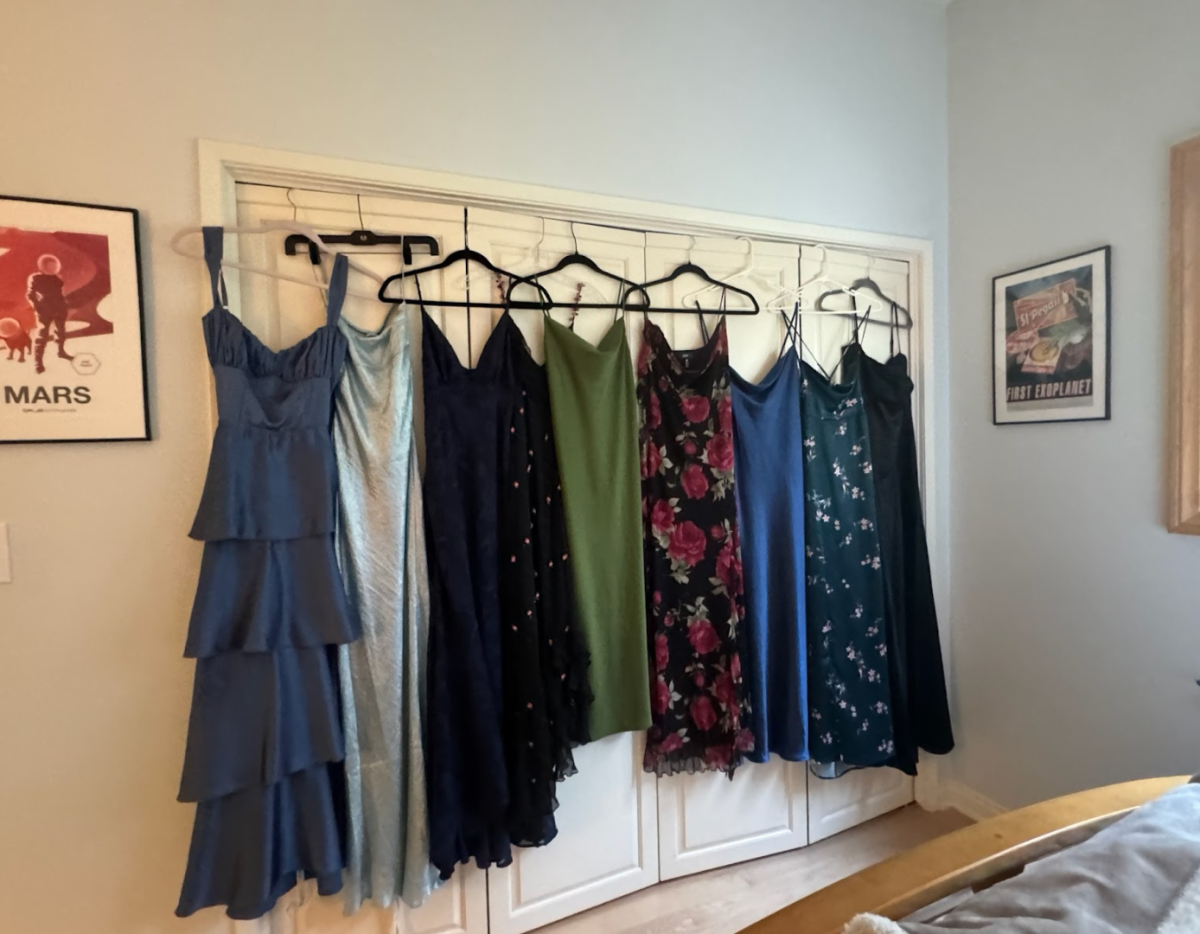








![Dr. Zanita Kelly, Director of Lower and Middle School, pictured above, and the rest of Westridge Administration were instrumental to providing Westridge faculty and staff the support they needed after the Eaton fire. "[Teachers] are part of the community," said Dr. Kelly. "Just like our families and students."](https://westridgespyglass.org/wp-content/uploads/2025/03/dr.-kellyyy-1-e1748143600809.png)








